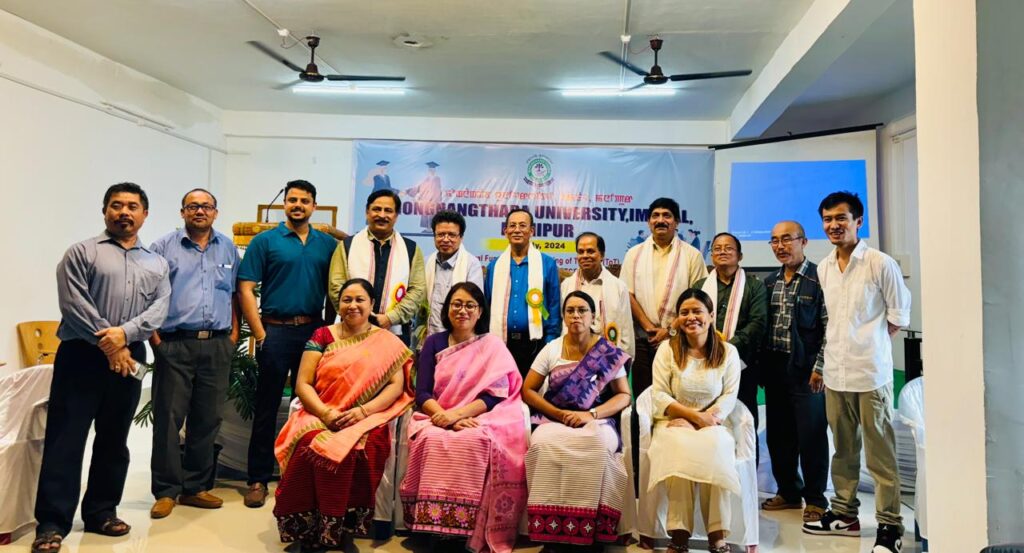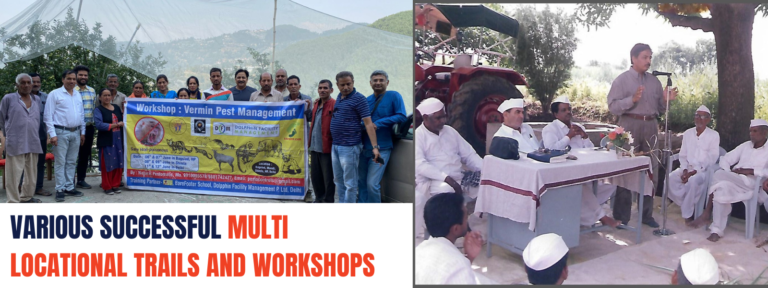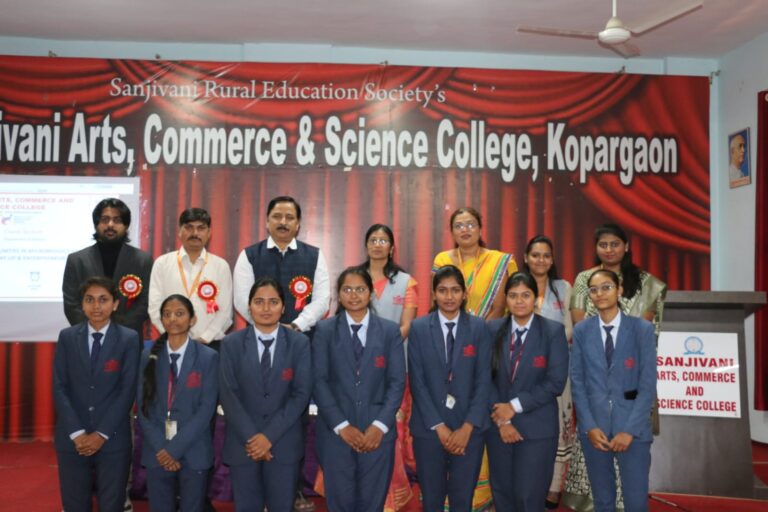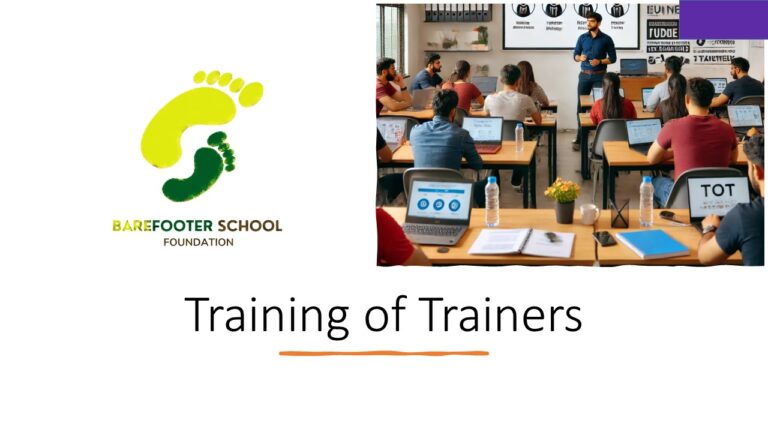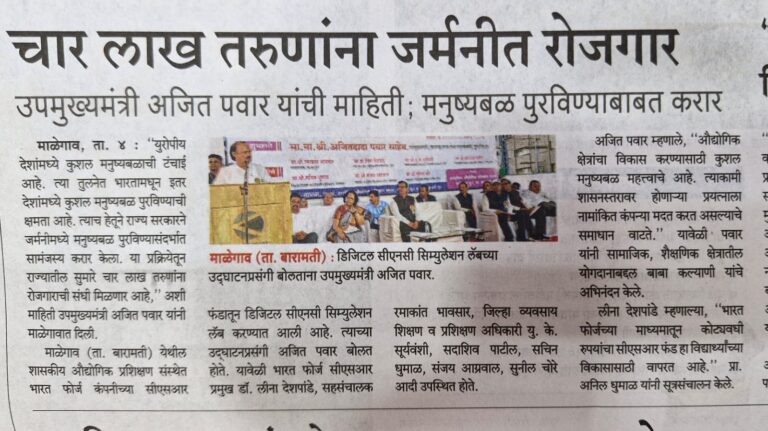Driving Sustainable Development in the North East through Innovation and Collaboration
By Avinash Salunke, Founder, BareFooter School Foundation, Pune
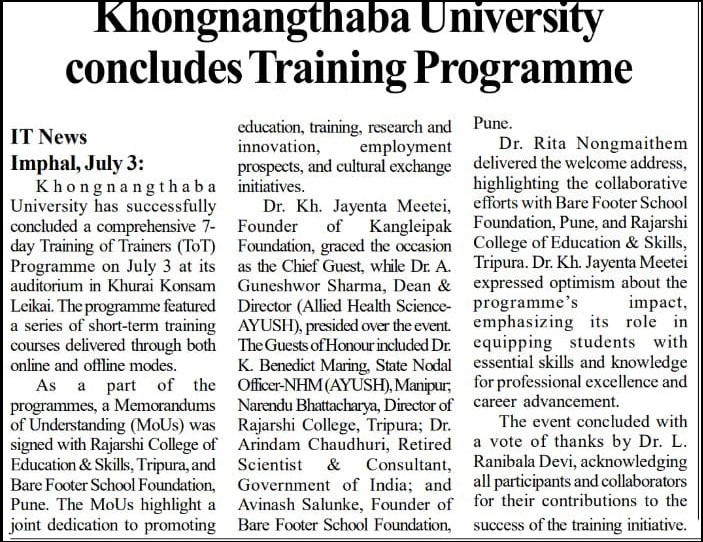
The North East States of India, with their Rich Cultural Heritage, Abundant Natural Resources and Strategic Geographic Location, have immense potential for sustainable development. However, challenges such as joblessness, limited opportunities, and a lack of innovation have hindered their progress. At BareFooter School Foundation, Pune, we believe that targeted interventions, strategic partnerships, and the exchange of startup innovations can transform these regions into hubs of prosperity and growth.
Unlocking Potential through Strategic Partnerships
In collaboration with Khongnangthaba University, Manipur and key government departments in Tripura, we are setting the stage for a series of initiatives aimed at fostering sustainable development in the North East. By leveraging the strengths of local resources, academic institutions, and government support, we aim to create a robust ecosystem for innovation and entrepreneurship.
Key Development Initiatives
- Forest-Based Initiatives
Community-Based Eco-Tourism Projects:
We aim to develop eco-tourism projects managed by local communities. By establishing eco-tourism villages, training local youth as guides, and promoting wildlife safaris, we can boost the local economy while preserving biodiversity.
Agroforestry and Sustainable Agriculture:
Integrating trees and shrubs into agricultural landscapes enhances biodiversity and soil health. Through agroforestry practices and sustainable agriculture training, we can increase crop yields and promote sustainable farming.
Forest-Based Enterprises:
Developing enterprises based on non-timber forest products (NTFPs) such as honey, medicinal plants, and bamboo can generate income for forest-dependent communities and promote sustainable forest management.
- Agriculture-Based Initiatives
Integrated Farming Systems:
Promoting integrated farming systems that combine crops, livestock, and aquaculture can enhance productivity and resilience. Establishing demonstration farms and providing training on integrated systems will improve farm productivity and diversify income sources.
Post-Harvest Management and Value Addition:
Setting up post-harvest processing units for fruits, vegetables, and spices can reduce post-harvest losses and add value to agricultural produce. Training on food processing, packaging, and marketing will increase farmers’ income and create job opportunities.
Organic Farming and Certification:
Promoting organic farming practices and obtaining certification for organic products enhances soil health, reduces chemical usage, and fetches premium prices for produce. Providing training on organic farming techniques and certification processes will support this initiative.
- Tourism-Based Initiatives
Cultural and Heritage Tourism:
Promoting cultural and heritage tourism by showcasing the North East’s rich history and tribal culture can preserve cultural heritage and boost tourism revenue. Developing heritage trails, cultural centers, and organizing cultural festivals will attract tourists.
Adventure and Nature-Based Tourism:
Developing adventure and nature-based tourism activities like trekking, zip-lining, and river rafting will attract thrill-seekers and nature enthusiasts. Promoting bird watching, wildlife photography, and camping will diversify tourism offerings and promote conservation.
Health and Wellness Tourism:
Developing health and wellness tourism centered around natural resources and traditional healing practices can attract health-conscious tourists. Establishing wellness centers offering Ayurveda, yoga, and meditation will promote local wellness practices and boost tourism revenue.
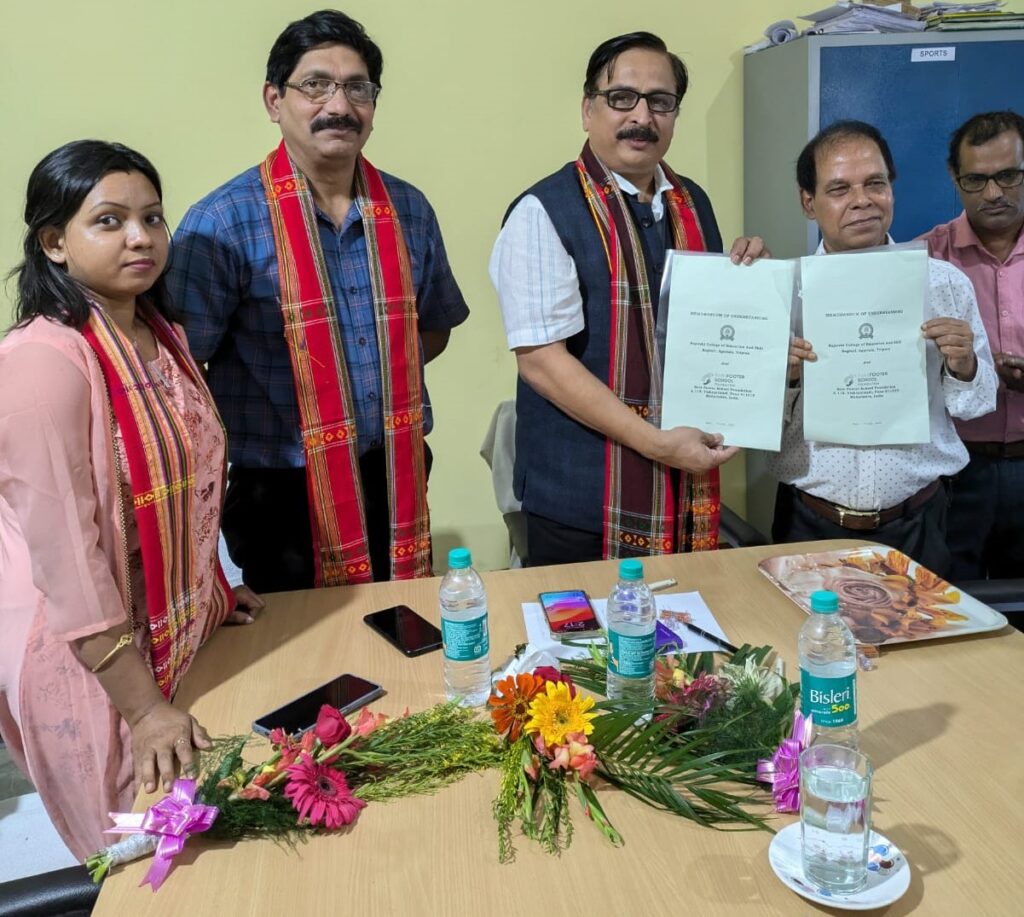
- Collaborative Initiatives with Khongnangthaba University
Research and Innovation Hub:
Establishing a research and innovation hub focused on sustainable development and technology transfer will foster innovation and support local startups. Collaborating on research projects and developing incubation centers will drive sustainable development.
Skill Development and Training Programs:
Providing skill development and training programs in tourism, forestry, and agriculture will enhance employability and build local capacity. Offering short-term certificate (STC) courses and paid apprenticeships will support economic growth.
Implementing the Initiatives
Needs Assessment and Planning:
Conducting a comprehensive needs assessment to identify priority areas and target communities will inform the development of detailed project proposals and action plans.
Stakeholder Engagement:
Engaging local communities, government departments, universities, and other stakeholders through workshops and meetings will build consensus and gather input.
Funding and Resource Mobilization:
Identifying funding sources such as government grants, CSR funds, and international donors and developing a resource mobilization strategy will secure necessary resources.
Implementation and Monitoring:
Setting up implementation teams, defining roles and responsibilities, and establishing monitoring and evaluation frameworks will track progress and impact.
Promotion and Outreach:
Launching awareness campaigns and using digital platforms to promote initiatives and attract participants will ensure widespread engagement.
Contacts for Collaboration
Government Officials: Tourism Minister, Forestry Minister, Chief Minister of Tripura.
Academic Partners: Vice-Chancellor and Heads of Departments at Khongnangthaba University, Manipur.
Local Community Leaders: Tribal leaders and community representatives.
Industry Partners: Tourism and hospitality associations, agricultural cooperatives, and farmer groups.
Funding Agencies: National Bank for Agriculture and Rural Development (NABARD), Corporate Social Responsibility (CSR) funds from private companies.
Ensuring Political Neutrality and Pure Noble Work
Maintain Transparency:
Ensuring all activities are transparent and well-documented and regularly publishing reports on progress and outcomes will build trust.
Focus on Community Benefit:
Highlighting the social and economic benefits for local communities and engaging community leaders and stakeholders will garner support.
Avoid Political Alignment:
Staying neutral and avoiding alignment with any political party or agenda will focus on the developmental and educational aspects of the initiatives.
Leverage BFSchool’s Reputation:
Using BFSchool’s established reputation and network to build credibility and trust and showcasing successful case studies and testimonials will reinforce the impact of our work.
Conclusion
At BareFooter School Foundation, Pune we are committed to making a significant impact on the lives of the needy and neglected people in the North East States of India. Through targeted initiatives, strategic partnerships, and a focus on sustainable development, we aim to transform these regions into thriving hubs of innovation and prosperity. By fostering collaboration, promoting sustainable practices, and empowering local communities, we are paving the way for a brighter future and striving to achieve recognition for our noble work.
Together, we can drive sustainable development and create lasting change. Join us on this journey to make a difference and help us turn our vision into reality.
Sustainable Development Ideas for North East States of India through Startup Innovation Exchange
- How to Implement the Exchange Program:
Form Partnerships:
– Establish collaborations between BareFooter School (BFSchool) and North East universities, government bodies, and local business associations.
– Sign MOUs with local universities, similar to those in Maharashtra, to facilitate resource sharing and program implementation.
Create Exchange Programs:
- Develop structured exchange programs where officials, political leaders, business owners, and farmers from North East can visit Maharashtra to learn about successful startup ecosystems.
- Similarly, invite startup entrepreneurs from Maharashtra to North East States to share their experiences and mentor local entrepreneurs.
Organize Innovation Hubs:
- Set up innovation hubs in key cities of North East States where startups can incubate and grow. These hubs can be connected to BFSchool’s existing incubation centers.
- Provide co-working spaces, access to resources, and mentorship programs within these hubs.
Conduct Workshops and Seminars:
- Regularly organize workshops, seminars, and training sessions focusing on startup development, innovation, and sustainable practices.
- Include sessions on accessing finance, marketing strategies, and technological innovations.
- Potential Areas for Development:
Agriculture and Agro-Processing:
- Promote sustainable agricultural practices and value addition through agro-processing units.
- Introduce innovative farming techniques like hydroponics, aquaponics, and organic farming.
Tourism and Hospitality:
- Develop eco-tourism and cultural tourism projects leveraging the unique heritage and natural beauty of the North East.
- Improve hospitality standards and create tourism packages that attract domestic and international tourists.
Handicrafts and Artisanal Products:
- Support local artisans in improving their products and accessing broader markets.
- Develop e-commerce platforms to sell North East handicrafts globally.
Renewable Energy:
- Promote the use of renewable energy sources like solar, wind, and biomass to meet local energy needs.
- Set up pilot projects to demonstrate the viability of renewable energy solutions.
Information Technology and Services:
- Develop IT hubs to attract tech startups and outsourcing businesses.
- Provide training in software development, digital marketing, and other IT-related fields.
- Making the Exchange Successful:
Incentivize Participation:
- Offer grants, subsidies, or other incentives for participants to engage in the exchange program.
- Recognize and reward successful collaborations and innovations.
Build Local Capacity:
- Train local facilitators and mentors who can continue to support startups after the initial exchange.
- Create a network of alumni who can share their experiences and guide new participants.
Ensure Continuous Engagement:
- Establish regular follow-ups and monitoring to ensure ongoing support and progress.
- Create online platforms for continuous communication and resource sharing between participants.
- Key Contacts for BFSchool Pune:
Local Universities and Research Institutions:
- Contact vice-chancellors and deans to establish academic partnerships.
- Examples: North Eastern Hill University, Tezpur University, and Assam Agricultural University.
Government Bodies:
- Engage with the North East Council (NEC) and respective State government departments.
- Contact the Ministry of Development of North Eastern Region (DoNER).
Local Business Associations:
- Collaborate with local chambers of commerce and industry associations.
Financial Institutions:
- Partner with banks and financial institutions to provide startup funding and financial literacy programs.
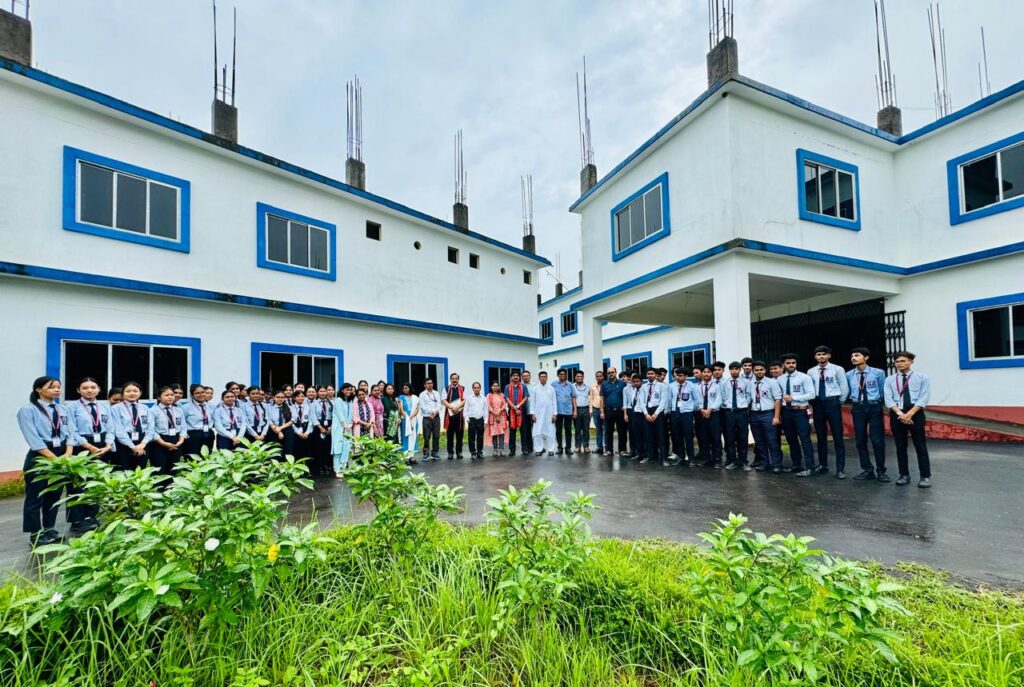
Contacts for Collaboration:
1. Government Officials:
– Tourism Minister, Tripura
– Forestry Minister, Tripura
– Chief Minister, Tripura
2. Academic Partners:
– Vice-Chancellor, Khongnangthaba University, Manipur
– Heads of Departments (Agriculture, Forestry, Tourism)
3. Local Community Leaders:
– Tribal leaders and community representatives
4. Industry Partners:
– Tourism and hospitality associations
– Agricultural cooperatives and farmer groups
5. Funding Agencies:
– National Bank for Agriculture and Rural Development (NABARD)
– Corporate Social Responsibility (CSR) funds from private companies
